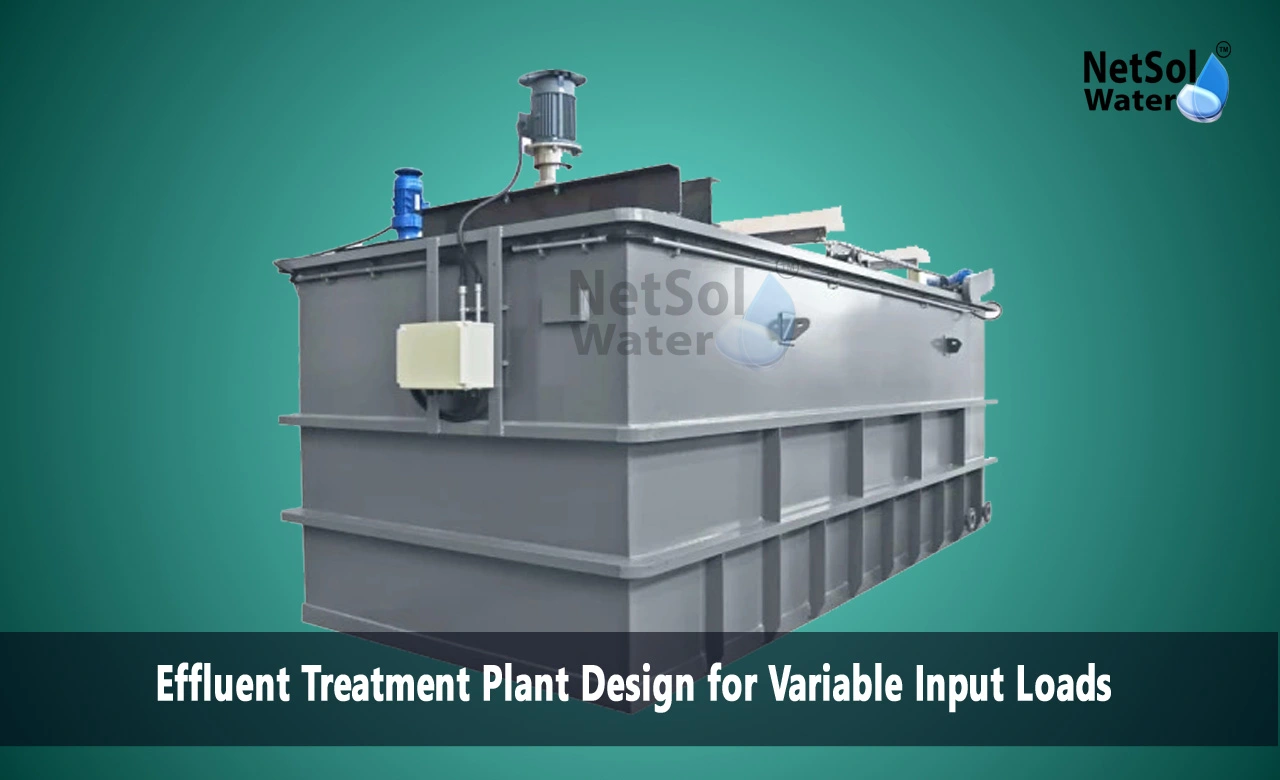Effluent Treatment Plant Design for Variable Input Loads
Wastewater treatment protects our environment and public health. However wastewater generation rarely remains consistent. Industrial processes municipal sewage systems and weather patterns cause significant variations in the volume and composition of effluent treatment plants. This variability challenges engineers and plant operators who must ensure treatment systems effectively handle these fluctuations while maintaining consistent output quality.
Variable Input Loads
Variable input loads impact treatment processes significantly. Understanding this concept helps in designing effective treatment systems.
Sources of Variability
Several sources contribute to variability in effluent input:
1. Industrial processes: Batch operations shift changes and production cycles create fluctuations in wastewater volume and composition.
2. Municipal sources: Daily and seasonal water usage affects flow rates and pollutant concentrations in sewage.
3. Weather events: Stormwater runoff increases the volume of water entering treatment plants especially in combined sewer systems.
4. Tourism and events: Seasonal tourism or large events temporarily increase the load on treatment facilities.
Impact on Treatment Processes
Variable input loads affect treatment processes in multiple ways:
· Hydraulic overloading: Excessive flow rates reduce retention times in treatment units compromising their effectiveness.
· Organic overloading: High concentrations of organic matter overwhelm biological treatment systems.
· Shock loads: Sudden spikes in pollutant concentrations disrupt biological processes and impact treatment efficiency.
· Underloading: Low flow periods lead to inefficient operation of treatment units designed for higher capacities.
Key Design Considerations
Designing an effluent treatment plant that handles variable input loads requires a holistic approach considering various factors:
1. Flow Equalization
Flow equalization manages variable input loads effectively. It uses storage tanks or basins to buffer incoming wastewater and release it at a more consistent rate to downstream treatment processes.
Benefits of Flow Equalization:
· Reduces peak hydraulic loads
· Stabilizes organic loading rates
· Improves overall treatment efficiency
· Allows for smaller downstream treatment units
Design Considerations:
· Size equalization basins based on expected flow variations
· Install mixing systems to prevent settling and maintain consistency
· Implement pumping and control systems for regulated outflow
2. Modular Design
Incorporating modularity into plant design allows greater flexibility in handling varying loads.
Advantages of Modular Design:
· Brings additional treatment units online during high-load periods
· Improves energy efficiency during low-load periods by shutting down unnecessary units
· Facilitates easier maintenance and upgrades without compromising overall plant operation
Implementation Strategies:
· Install parallel treatment trains that operate independently
· Use scalable biological reactors
· Incorporate modular clarifiers or membrane filtration units
3. Advanced Process Control
Sophisticated control systems optimize plant performance under varying conditions.
Key Components:
· Monitor influent characteristics in real-time
· Use predictive modelling to anticipate load variations
· Adjust process parameters automatically (e.g. aeration rates chemical dosing)
Benefits:
· Improves treatment efficiency
· Reduces energy consumption
· Enhances stability of biological processes
4. Robust Biological Treatment Systems
Biological treatment forms the heart of effluent treatment plants. Designing these systems to withstand variable loads proves crucial.
Strategies for Robust Biological Treatment:
· Implement selectors to promote growth of desired microorganisms
· Use bioaugmentation to enhance treatment capacity during peak loads
Considerations for Biological System Design:
· Provide adequate oxygenation capacity to handle peak organic loads
· Implement nutrient balancing systems to maintain optimal C:N:P ratios
· Use biomass retention mechanisms to prevent washout during high flow events
5. Flexible Chemical Treatment Systems
Chemical treatment processes manage variable input loads effectively particularly for removing specific pollutants or enhancing settling characteristics.
Design Elements:
· Install variable-speed chemical dosing pumps
· Adjust coagulant and flocculant doses in real-time based on influent quality
· Provide multiple injection points for chemical addition
Benefits:
· Improves removal of suspended solids and phosphorus
· Enhances settleability of biological flocs
· Responds quickly to changes in influent characteristics
6. Efficient Solids Handling
Fluctuations in input loads impact solids production and handling requirements significantly.
Key Considerations:
· Implement flexible sludge wasting systems to accommodate varying biomass growth rates
· Provide adequate sludge storage capacity to handle peak production periods
· Install dewatering systems capable of handling variable sludge characteristics
Innovative Approaches:
· Implement anaerobic digestion for energy recovery
· Use sludge thickening technologies to reduce volume
· Explore beneficial reuse options for treated biosolids
Conclusion
Designing effluent treatment plants to handle variable input loads presents a complex but essential task in our modern world. Engineers create resilient and efficient facilities by incorporating strategies like flow equalization modular design advanced process control and flexible treatment systems.
As we face challenges like climate change urbanization and industrial growth adaptable wastewater treatment infrastructure becomes increasingly important. Future developments may integrate artificial intelligence for predictive control use advanced materials for more efficient treatment processes and implement decentralized treatment systems to reduce the impact of variability on centralized plants.
To explore customised commercial RO plants, Industrial RO plants, ETP or STP solutions for your needs in your areas and nearby regions, contact Netsol Water at:
Phone: +91-965-060-8473, Email: enquiry@netsolwater.com



